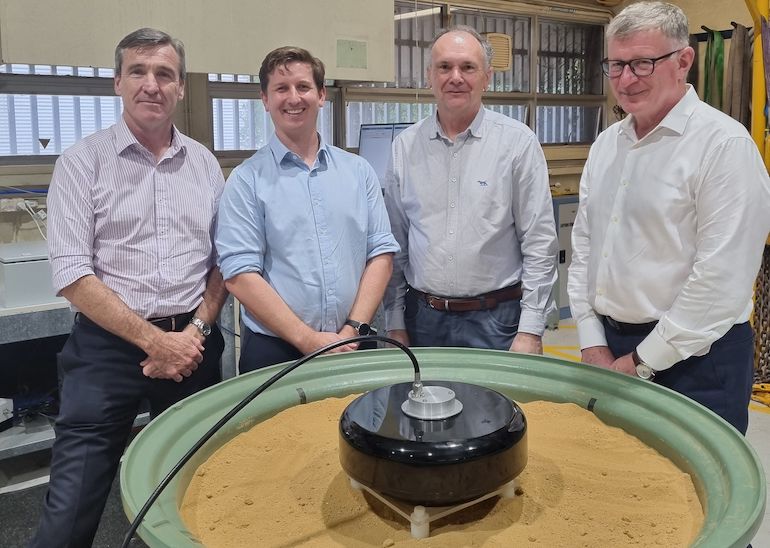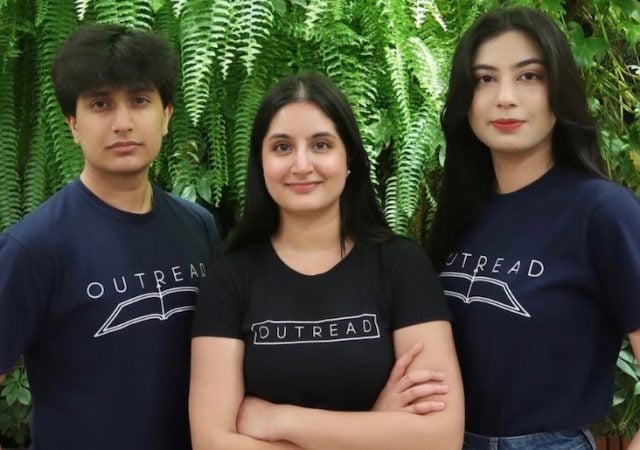When it comes to the size of the problem deep tech startup MRead is solving, detecting and dealing with the global humanitarian crisis caused by landmines is both larger and more horrifying than any market you’d want to address.
Today, April 4, is the United Nations International Day for Mine Awareness and MRead is the result of a collaboration with science agency CSIRO and corporate advisor RFC Ambrian. The company has just landed an undisclosed Seed round that will give it two years of runway to start tackling a problem that grows bigger daily, especially with Russia’s war on Ukraine currently underway.
Some 25 years after hundreds of countries agreed to a global treaty banning antipersonnel landmines, more 100 million landmines remain deployed in more than 60 countries, and cause an estimated 6,500 casualties annually, including around 2500 deaths.
The pioneering landmine detection technology they’re utilising was developed by CSIRO as part of decades of work on ore sorting technologies for the mining sector. They’re building hand-held detectors that are faster, more accurate, and cost-effective for detecting landmines for clearing.
CSIRO and corporate advisor RFC Ambrian have launched MRead as a joint venture, backing the undisclosed Seed round alongside ASX-listed Codan.
CSIRO developed magnetic resonance technology that detects the molecular signature of explosives used in landmines, making it more reliable than the metal detectors currently used. MRead’s hand-held devices avoid the white noise of metal objects such as bottle caps and shrapnel, which slows down the current metal detection and clearance process.
Lifesaving tech
CSIRO CEO Larry Marshall said MRead will generate new jobs and save lives.
“Science-driven innovation is solving our greatest challenges – from growing our economy by creating new industries and reinventing old ones, through to tackling a global humanitarian crisis that injures or kills thousands of people every year,” Dr Marshall said.
“The precision of this technology will be a game-changer for landmine-clearing efforts, delivering a solution that is faster and more reliable than current detectors, which in turn protects the people doing the clearing and expands the range of clearing efforts to make the world a safer place. I’m proud to see world-class science driving innovation from Australia reaching out globally to make lives better around the world.
MRead managing director John Shanahan is a retired brigadier and former commander of the ADF Counter EID Task Force, so he understands first-hand the difference it can make in countries recovering from conflict.
“The magnetic resonance landmine detection technology will have profound impact on areas recovering from and currently experiencing hardship and danger from uncleared minefields,” he said.
“These enduring explosive remnants of war inhibit freedom of movement, limit access to food, water, schools, hospitals, and shelter that jeopardises the safe recovery and return of civilian populations.”
MRead’s first customers are humanitarian non-government organisations such as The HALO Trust, which carries out mine clearance activities throughout the world.
The HALO Trust R&D officer Matthew Abercrombie said some of the poorest communities in the world are hardest hit by the ongoing problem of landmines, which can remain in place decade after conflicts have ended.
“Landmines kill and injure men, women, boys and girls, they kill valuable livestock, and they prevent safe access to homes, infrastructure and productive farmland,” he said.
“However, demining is a slow process and HALO is always looking for new equipment and techniques that can increase clearance efficiency. Detectors which can reliably discriminate between landmines and other metallic objects have the potential to have a major impact in this area.”
MRead plans to deploy its first hand-held detectors with the HALO Trust to landmine-affected regions in Southeast Asia in 2024.




















Trending
Daily startup news and insights, delivered to your inbox.